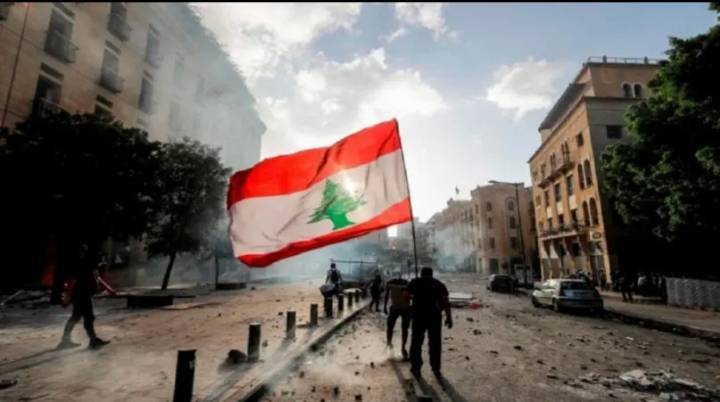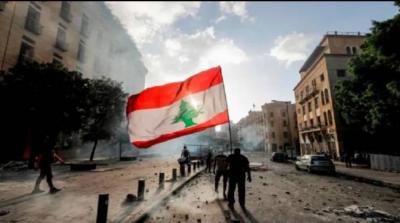The recent popular movements in the streets over the weekend, sparked by the arrest of activist William Noun, have revived security concerns about potential riots that begin with judicial backgrounds and then escalate to mirror the socio-economic crisis, plunging the country into a wave of uncontrolled chaos. Noun's arrest last Friday, who leads the demands of the families of victims asking for the judicial investigator Tarek Bitar to be allowed to move forward with a case that has been stalled for 13 months due to lawsuits filed by politicians and former ministers, triggered public gatherings and road blockades, leading to clashes between protesters and security forces from both the State Security and the Lebanese Army.
Security sources told "Asharq Al-Awsat" that “warnings about the deterioration of the situation are ongoing, and we have always alerted against the impact of the unstable political and living conditions on security.” They confirmed that “the army's commands to officers and personnel state that exploiting the situation and blocking roads is a red line, and the army is decisive in this regard and will not show any leniency in matters concerning the country's security.”
The "Free Patriotic Movement" and its supporters link the rising tension in the streets related to the port case with the arrival of a European judicial delegation to Lebanon to investigate corruption cases linked to the Central Bank of Lebanon. They discuss the exploitation of the victims' families to obstruct the delegation's mission, while opponents of the "movement" accuse the State Security of politically motivated actions and strongly criticize the pursuit of the victims' families instead of focusing on apprehending the suspected politicians against whom arrest warrants have been issued.
Opposition parliamentary sources do not rule out that some may be trying to create security issues in the streets to expedite the election of a president. They told "Asharq Al-Awsat": “We may witness various pressures in the upcoming weeks, some of which may take on a security nature in an attempt to break through the presidential crisis.”
Conversely, Riyad Kahwaji, head of the "Middle East and Gulf Military Analysis - Enigma" center, does not foresee a return of people to the streets soon, whether over the port case or the living conditions. He pointed out in a statement to "Asharq Al-Awsat" that “people are in a state of paralysis due to the pressures of searching for a livelihood and frustration over the failure of reform forces to achieve anything. The ruling authority has harshly punished the people and collaborated with money powers to impoverish them by seizing their funds and depriving them of water, electricity, and other provisions that were available before the October 17 revolution.” He adds: “Most of those who participated in the protests have left the country out of despair, and some contributed to the election of certain individuals to parliament seeking change, only to discover the failure of those who were elected and their inability to achieve anything.”
Kahwaji believes that “it will take time before a new generation or a group willing to revolt again emerges that may bring about genuine change. Revolutions do not die; they go through waves and phases, but one cannot know the timeframe in which they will achieve their goal.”




